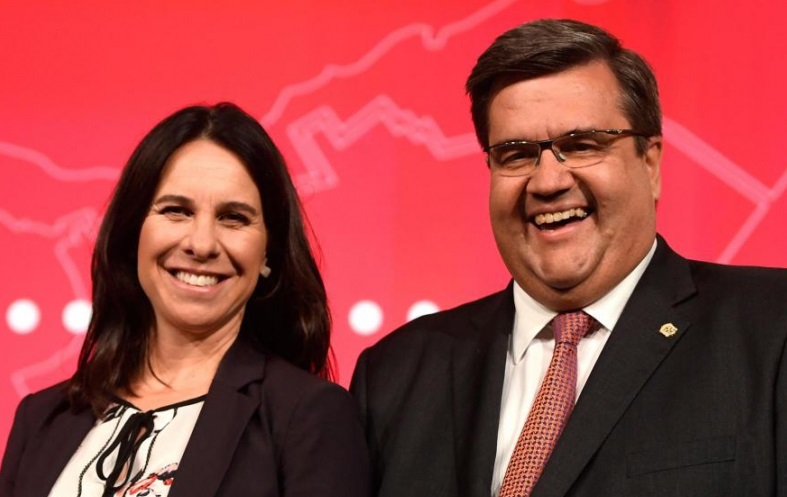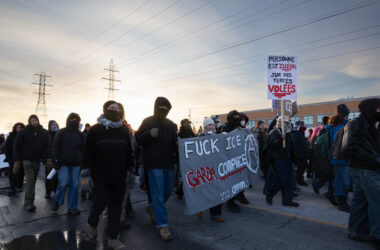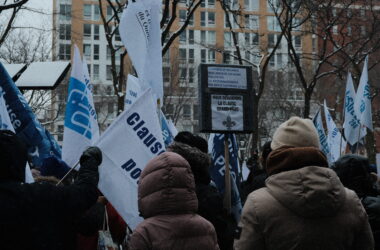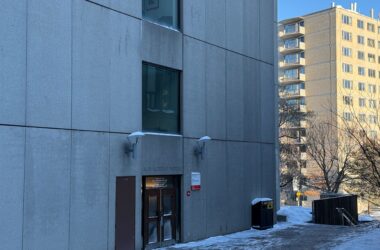The Montreal mayoral election on Nov. 5 presents a choice between incumbent Denis Coderre of Équipe Coderre and Valérie Plante of Projet Montreal. Though most pundits predicted at the beginning of the year that Coderre would easily secure reelection, the most recent poll put him and Plante in a dead heat.
The election stakes an incumbent who stresses that his administration has restored vibrancy to a city marred by corruption against a challenger who promises more transparent and egalitarian policy-making. When voters head to the polls to elect a mayor—alongside borough mayors, city councillors, and borough councillors—they will be choosing between two paths for Montreal. While Coderre has assured voters continued progress in the same direction, Plante has demanded stronger accountability to residents, improved transportation, and cheaper housing.
Accountability
Having served as a Liberal Member of Parliament for the Bourrassa riding since 1997, Coderre won the 2013 mayoral election and inherited a city hall tarnished by private dealings of previous administrations. The previously elected mayor Gérald Tremblay resigned after a corruption investigation suggested ties between his administration and the mafia. The police arrested Tremblay’s interim successor, Michael Applebaum, only months later for fraud.
Équipe Coderre officials argue that the mayor has eradicated fraudulent dealings while also revitalizing the city’s economy. Over the course of his tenure, Coderre created the post of inspector general to investigate collusion between private businesses and public officials, solicited private construction investment, and successfully lobbied the Quebec National Assembly to assign the city metropolitan status, a designation which loosens provincial restrictions on how Montreal spends its money. Daniel Loureiro, Équipe Coderre city councillor candidate for the Jeanne-Mance district, pointed to Montreal’s falling unemployment rate as evidence of the mayor’s success.
“Over the last four years, Montreal has become proud again,” Loureiro said. “I see people happy when they go around the world and say they're from Montreal.”
Perhaps no clash better encapsulates the topic of transparency than the candidates’ debate over the city’s 375th anniversary. Coderre contends that the celebrations energized city residents, cultivated a sense of belonging, and spurred infrastructure renovations that the city needed to make anyways. Plante vehemently disputes Coderre’s account, asserting that the mayor spent millions of dollars on gaudy projects such as the light show on the Jacques Cartier Bridge. To Plante’s officials, the waste reflects the administration's failure to consult residents over expenditures.
“[Coderre’s government] seems like an administration that's running on flashy issues instead of investing that money into improving the lives of everyday Montrealers,” Kiana Saint-Macary, a Projet Montreal volunteer, said.
Critics of Coderre’s administration argue that the pace of Coderre’s reforms has been sluggish. Niall Clapham-Ricardo, Projet Montreal co-campaign manager for the Côte-des-Neiges district, noted that the mayor has failed to disclose many city contracts, scheduled meetings, and the cost of the Formula-E race, which struggled to sell tickets. He added that Plante would endeavour to publicize the agenda of the mayor’s office to improve engagement with residents.
“When you're going from zero to five on a scale of zero to a hundred, you could say that's an improvement, but the last administration was the worst in terms of transparency,” Clapham-Ricardo said. “We need to make more meaningful public consultations.”
Transportation
Plante, who currently serves as a Ville-Marie city councillor, won the Projet Montreal leadership race three years ago in part because of her proposal to construct the Pink Metro Line, a project that has captured the attention of many voters.
The new metro would run diagonally from Montreal-Nord to Lachine, crossing through the Plateau Mont-Royal. Projet Montreal officials contend that the line would link low-income neighborhoods to the Downtown area, making it easier for residents of northern Montreal to commute to jobs across the city. According to their estimates, riding the Pink Line from Montreal-Nord to Centre-Ville would take 22 minutes compared to 45 minutes by car and an hour by bus.
“Montreal-Nord is chronically under-supplied in terms of public transportation, and it’s a very low-income, racialized area,” Saint-Macary said. “The Pink Line will give metro access to an entire region of Montreal that doesn’t have it.”
The project’s proponents add that it would alleviate traffic by providing another transportation option for the population-dense Plateau neighbourhood. Jabiz Sharifian, Projet Montreal city councillor candidate for the Peter-McGill district, observed that the new line would make it easier to take the crowded Orange Line or drive on the highway.
“It’ll reduce congestion in the city simply because 70 per cent of residents from northern Montreal that come Downtown have to take their car,” Sharifian said.
Although Plante estimates that building and operating the line would cost $5.9 billion, she has assured voters that the Pink Line’s construction would not affect the city’s long-term plan to extend the Blue Line northeast of Saint-Michel to Anjou. To fund the construction, she intends to appeal to the federal infrastructure bank, the federal public transit infrastructure fund, and the provincial infrastructure fund.
However, Coderre has characterized the appraisal as woefully unrealistic, claiming that building one metro station costs about $300 million, an estimate that puts the Pink Line’s cost nearer to $10 billion. Instead, Coderre has identified the Blue Line extension and the construction of the Réseau électrique métropolitain (REM) train as his transportation priorities. The REM, which has secured funding from a mixture of federal, provincial and local funds, would connect the airport with the McGill and Édouard-Montpetit metro stations.
“Right now, it takes 45 minutes to get to the airport, but it’s going to get much shorter,” Cathy Wong, Équipe Coderre city councillor candidate for the Peter-McGill district, said. “And Mayor Coderre has worked so hard to secure that funding from the Caisse du Quebec.”
Housing
The candidates have reached closer consensus on the need to construct more affordable housing units amid rising real estate prices. The Inclusionary Housing Strategy, which became a centerpiece of Montreal’s affordable housing policy in 2005, outlines that new large residential developments should allot 30 per cent of their units for affordable housing. In practice, developers rarely follow the guideline because the city can only offer exemptions from building regulations to incentivize their cooperation.
Équipe Coderre officials emphasized that the Status of Metropolis bill passed by the Quebec National Assembly in September will enable the mayor to better administer the housing strategy. This law permits greater flexibility in how Montreal spends provincial funds and allows for binding contracts between the city and developers, meaning that officials can now enforce the affordable units threshold more stringently.
“With the Status of Metropolis, we will have more power to say that if developers aren't able to build affordable housing that we make sure that they do so,” Wong said.
Plante claims that Coderre’s attention to affordable housing during the election cycle doesn’t reflect his administration’s performance over the past four years. Projet Montreal officials reckon that the city needs to take more emphatic action and have pledged to raise the requirement to 40 per cent of units in an effort to accommodate students and low-income residents.
“The price of housing, especially for McGill, [is] really high for students and we understand that,” Sharifian said. “For the last 10 years, less than two per cent of all developments in Montreal have been affordable. We're hoping to change that.”
Candidates from both parties will spend the remaining days before Nov. 5 trying to sway undecided voters, who comprise 21 per cent of the electorate. In a close election, their decisions could make the difference.
“We have to make sure that people turn out to vote,” Sharifian said. “There are two different paths for the residents of Montreal.”
The Montreal mayoral election will be held on Sunday, Nov. 5 from 10 am to 8 pm. To check your eligibility and polling station, click here.









